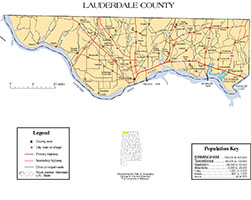On Memorial Day I always think of my friend George Mangrum of Lauderdale County, Alabama. Here is his story. It needs to be told.
In 1966, I graduated from a modest Alabama high school and went looking for a summer job. It was a time when the civil-rights movement was tearing the South apart, and the escalating war in Vietnam was devouring everything in its path. But I had a scholarship to attend Vanderbilt that fall, so all I thought about was a chance to make some money over the summer.
 The only job I could find was with an all-black work crew hauling off loads of rocks and waste from a construction site. A white boy like me working on an all-black crew was a little irregular in those segregated days, but I was happy to have the job. I imagine some of my white classmates working soft summer jobs with their daddies’ companies got a snicker out of it.
The only job I could find was with an all-black work crew hauling off loads of rocks and waste from a construction site. A white boy like me working on an all-black crew was a little irregular in those segregated days, but I was happy to have the job. I imagine some of my white classmates working soft summer jobs with their daddies’ companies got a snicker out of it.
The other guys on the crew were a little surprised to see me, a white boy, show up at the site and pick up a shovel. They weren’t cold to me, but they seemed uncertain, perhaps wondering if the boss had sent me to keep an eye on them. But I fell silently into line with them and went to work.
After a day or two, during our lunch break, a young man approached me and introduced himself. His name was George Mangrum, he said, and he lived on a tenant farm out in the county. “That’s why the other guys call me Country,” he said. With a relaxed and generous smile, he introduced me to the other men on the crew, and with his introduction the men began to warm up. The guys got a laugh out of trying to pronounce my last name, so they soon started calling me “Whitebread.” Everybody knew that Whitebread was a term of derision for whites among blacks, but I didn’t care. We just shared a good laugh about it, and I was in.
In time, I found the other men agreeable and kind and ready to talk. Most of them were older than George and me, and at my age, and among black people, I had only a dim idea of how old they might have been. Some of them seemed quite old, but it was clear that they had done hard manual labor all their lives.
George and I found that we were exactly the same age. Both eighteen. George had just joined the Marines and was working through the summer until his call-up papers came. I was waiting for September when I would move to Nashville and begin a new life at Vanderbilt. George didn’t have a high-school diploma—there was no high school for black kids out where he lived—but it didn’t concern him that he probably faced a life of low-wage labor. Neither of us looked that far into the future. We were just kids.
But we had a lot in common and a lot to talk about. We’d joke as we worked and make up lies about ourselves to pass the hours. Especially, we’d boast about all the girls and liquor we’d had, with as much exaggeration as we could muster. George was particularly imaginative in his boasts, and we laughed all through the day.
 Percy Sledge had hit it big that summer at Fame Studios across the river in Muscle Shoals, and George claimed he had a friend who knew Sledge personally. We’d howl “When a Man Loves a Woman” with each other, and everybody would laugh. George and the other men marveled at Sledge’s success—he was one of them, after all—and they talked in hushed voices about all the money he was said to be earning. “Why, I remember that boy when he didn’t have nothin’!”, one said, with no little pride.
Percy Sledge had hit it big that summer at Fame Studios across the river in Muscle Shoals, and George claimed he had a friend who knew Sledge personally. We’d howl “When a Man Loves a Woman” with each other, and everybody would laugh. George and the other men marveled at Sledge’s success—he was one of them, after all—and they talked in hushed voices about all the money he was said to be earning. “Why, I remember that boy when he didn’t have nothin’!”, one said, with no little pride.
So George and I became real friends, reduced to our essentials, reduced to being nothing more than who we were, out there in the deadening heat and relentless sun of the Alabama summer. George’s wit and personality grew on me, with his funny stories and idiosyncratic opinions and language, and I was happy to see that he liked me too. But there was never a thought that I would invite him to sit with me on the watermelon tank at Gargis’s Store after work and have a Nehi. That’s the way race relations were for people in that time and place. We could share a bucket lunch sitting on the ground out in the sun, but nothing away from the job.
Then the summer ended. I went off to Vanderbilt with a scholarship and a student draft deferment in my pocket, and George got his call-up papers from the Marines. I don’t remember actually saying good-bye to George, but I do remember how proud he was to be setting off on the adventure of his life. Neither of us knew what was in store, but we were both excited.
Then, that fall, while I spent my days reading Plato and Shakespeare and going to parties and football games, George found himself in the killing fields of Vietnam, carrying a rifle.
My first year of college passed quickly, and in the spring I left for a fun summer job in the Forest Service in Colorado. It was an especially good time for me. When summer was over, I went home for a few days before school started and decided to drop by the old crew to see how everyone was doing. We would always be friends.
The guys were glad to see me, but they seemed reserved. Finally they told me that George had been killed in a mortar attack about a month earlier, somewhere in Quang Tri province, a place no one had ever heard of. I was dumbfounded—it didn’t seem possible that George could be dead. And the war, which I had opposed only in the abstract, suddenly became urgent and real.
The men were sad about George, certainly, but they hid their sorrow and spoke to me with the taciturn acceptance required of African Americans in that strictly segregated world. They were polite and warm, but I could feel them withdrawing across the color line from me. George’s death at the hands of a white man’s war had revealed to them that the prior summer’s idyll had been a fond illusion, blown apart by an exploding artillery shell.
I feel lasting regret that I did not go to visit George’s family at that moment, although I had never met them and knew them only from George’s funny stories. But it seemed awkward to me. I was afraid of what they might think. Here I was, a white boy they knew was privileged and protected and safely home. They would understand that I had been educated in a segregated white school system, with teachers who made me believe I could to go to college, and I had a loophole in the draft laws to protect me if I did. George had none of those things, of course, and his young life was thrown into a horrible place he could never have imagined and finally chewed up in the bloody meat-grinder of that terrible and useless war.
It would be too easy to say that George Mangrum died for me. “That’s life,” people say, “the luck of the draw, whose name’s on the bullet, one’s lot in life” … whatever. But I don’t accept that. Surely George’s life meant more than that. But when I think of George Mangrum’s life and of America’s privilege and inequality and mindless military adventures, I despair of understanding.
Maybe the lesson to be learned from the brief flicker of George’s life is that there just isn’t one.
But I love you, George. Maybe that’s all that’s left to any of us. And I’ll always think of our labor in the Alabama sun as life well-lived.
[This essay appeared originally on May 30, 2016.]

Copyright (c) 2016 by Wayne Christeson. All rights reserved. Chapter 16‘s copyeditor, Wayne Christeson, is a Vanderbilt graduate and a retired attorney who has lived on a farm in Leiper’s Fork, Tennessee, for twenty-five years. His work has appeared in Vanderbilt Magazine, Nashville Arts, the Nashville Scene, and the Lost Coast Review, among other publications.





